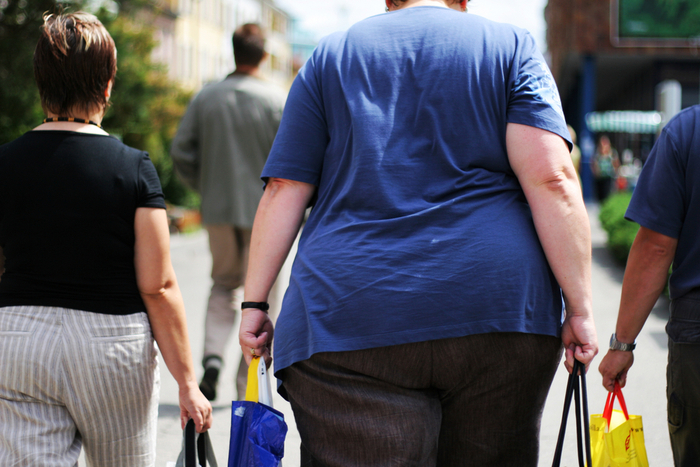While grocers have been working hard to replenish stock and protect customers and consumers during the Covid-19 crisis, one thing may have slipped their minds – the amount of unhealthy offerings near the cash points.
If there’s one thing that’s been on consumers’ minds during the pandemic, it’s their health. However, grocers have seemingly repressed efforts to combat obesity despite capitalising on the rise of veganism.
Prior to the pandemic, The Royal Society for Public Health (RSPH) said in a report that store layouts at supermarkets were designed to lure shoppers into making unnecessary and unhealthy food and drink purchases. The health charity urged supermarkets at the time to remove junk food from shelves at eye level to reduce obesity levels. It found that over a third of shoppers had bought unhealthy food on impulse because they saw it on offer.
“Supermarkets contribute to over-consumption of calories, using various tactics to convince consumers to buy more items,” RSPH said in its report.
“Layout, promotions and sensory cues all influence consumers to maximise profit, with little regard for the nutritional value of products promoted to consumers.”

Last year also saw Advertising Standards Authority (ASA) ban junk food ads from Asda, Marks & Spencer, and Lidl after they were found to have been breaching advertising rules. The ASA found that the retailers had used child avatars to find advertisements featuring food & drink products which were high in fat, salt and sugar (HFSS).
On Monday, the government revealed its Better Health strategy which will ban junk food advertisements on TV and online prior to the 9pm watershed as part of a £10 million Public Health England campaign aimed at tackling obesity.
The initiative now means that “buy one get one free” deals on unhealthy food will be banned and there will be restrictions on where HFSS products can be promoted in store, including a ban on chocolates, crisps and sweets being sold at the checkout.
There is also debating on whether to outlaw adverts for HFSS products online altogether.
Nottingham Business School retail research associate Nelson Blackley said that prior to Covid-19, the UK had huge diet-driven health challenges, with two in three adults and one in three children already overweight or obese.
“A diet of high-sugar, high-fat and processed foods had fuelled an obesity crisis, with an impact on people’s health, the NHS and the economy already too great to be ignored,” he told Retail Gazette.
“The pandemic has highlighted the vital importance of a healthy society and the impact of poor diet, which has been long recognised as one of the largest causes of ill-health.
“It has also reinforced the vital role supermarkets have in society and public health.”

Blackley also argued that due to unhealthy options being heavily marketed so often, supermarket promotions regularly centre around them. Therefore, consumers are often left unable to afford, or find, healthier alternatives.
Nick Johnson, a partner at Osborne Clarke, argued that the ban on junk food ads could prove difficult to implement.
“An online watershed for video ads for certain food ads is unprecedented and will impact the online sector much more severely than TV,” he told Retail Gazette.
“Not all online ad platforms have the facility to impose timing restrictions on advertising, so in the short-term this could result in a de facto ban on video ads for HFSS foods for certain platforms.
“It seems this may be what the government intends since it is also going to consult on a complete ban of junk food advertising online.”
“The pandemic has highlighted the importance of health and the impact of poor diet”
Meanwhile, Dominic Watkins, head of food at law firm DWF, said that while it is encouraging the government launched measures aimed at changing the public’s behaviour, “it would have been better if the government had instead invested money in supporting healthy foods and providing shoppers with the skills to understand how to make healthier choices”.
“A comprehensive approach to education and nudges towards choosing an active and healthy lifestyle rather than focusing just on restrictions in food and retail would be the best course of action,” he added.
“It is clear that the UK has a substantial issue with obesity and the levels of inactivity in this country are astounding.
“The lockdown will not have helped with this. While the food and retail sectors certainly have a role to play, we as citizens arguably have a more substantial role to play in looking after our own health, and in particular, levels of activity.”
Katharine Jenner, nutritionist and director at campaign group Action on Sugar, said it was encouraging to see Asda follow the example set by Lidl and Aldi by removing cartoon characters from 12 of its own brand cereal products – which were packed with sugar.
“Retailers have also been reducing sugar in many of their products aimed at children, particularly yogurts, breakfast cereals and soft drinks,” she explained.
“All the major retailers use signpost front of pack labelling on their products, which has been shown to help consumers make healthier choices, which is even more vital now as we have limited to time to make ‘at a glance’ judgements on food choice.”
Grocers now have the opportunity to harness their customer relationships and must recognise their role as key players in the fight against obesity. In particular, the Big 4 chains Tesco, Asda, Sainsbury’s and Morrisons would play a key role as they hold over 70 per cent of the UK grocery market share combined.
The larger grocers are able to influence healthy purchasing behaviours and encourage people to increase their activity levels. The government’s aggressive anti-obesity strategy could now see retailers produce “healthier” foods in exchange for greater advertising opportunities, or at least shift their advertising strategies around them instead. And that should be a good thing.
Click here to sign up to Retail Gazette‘s free daily email newsletter


















